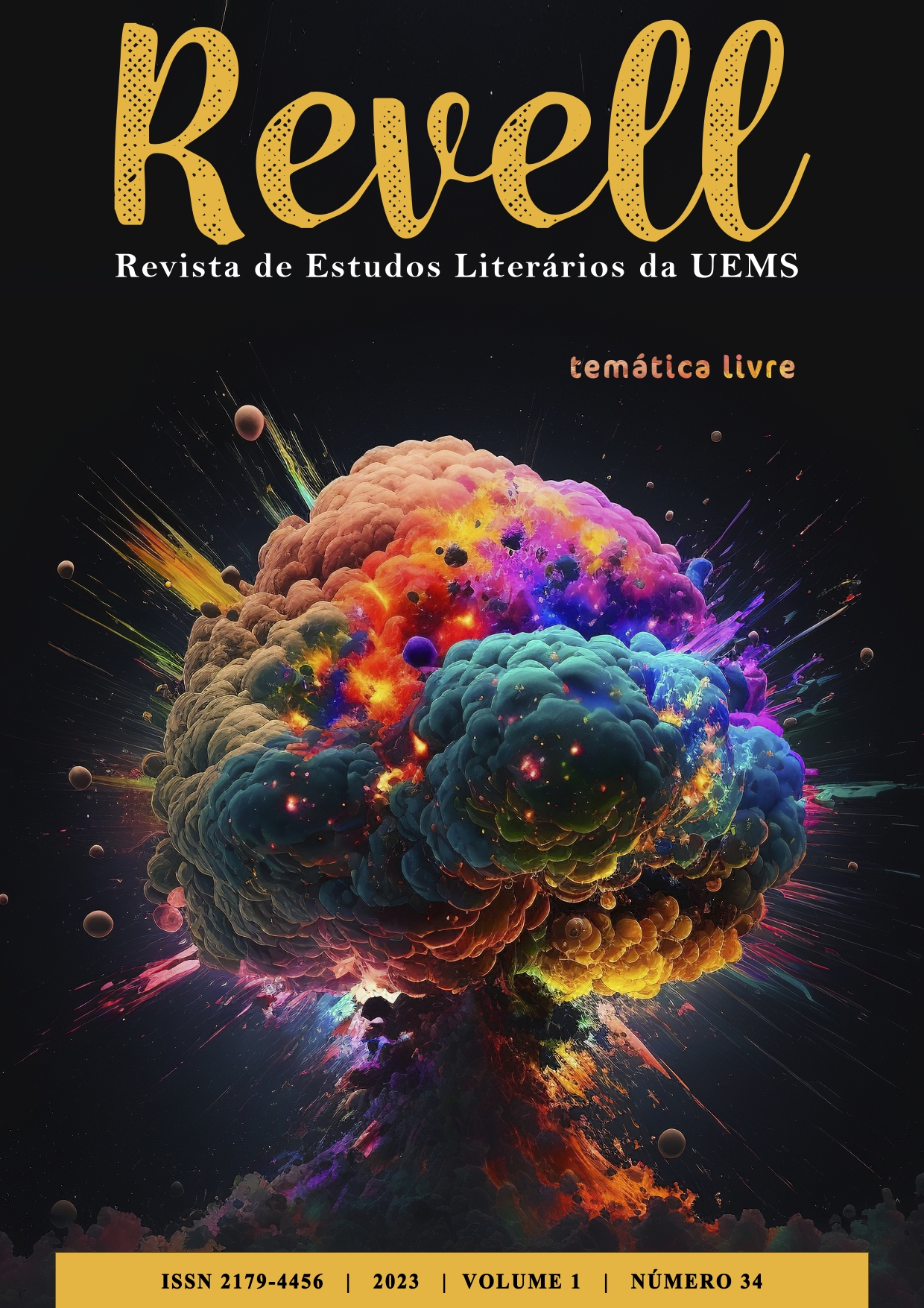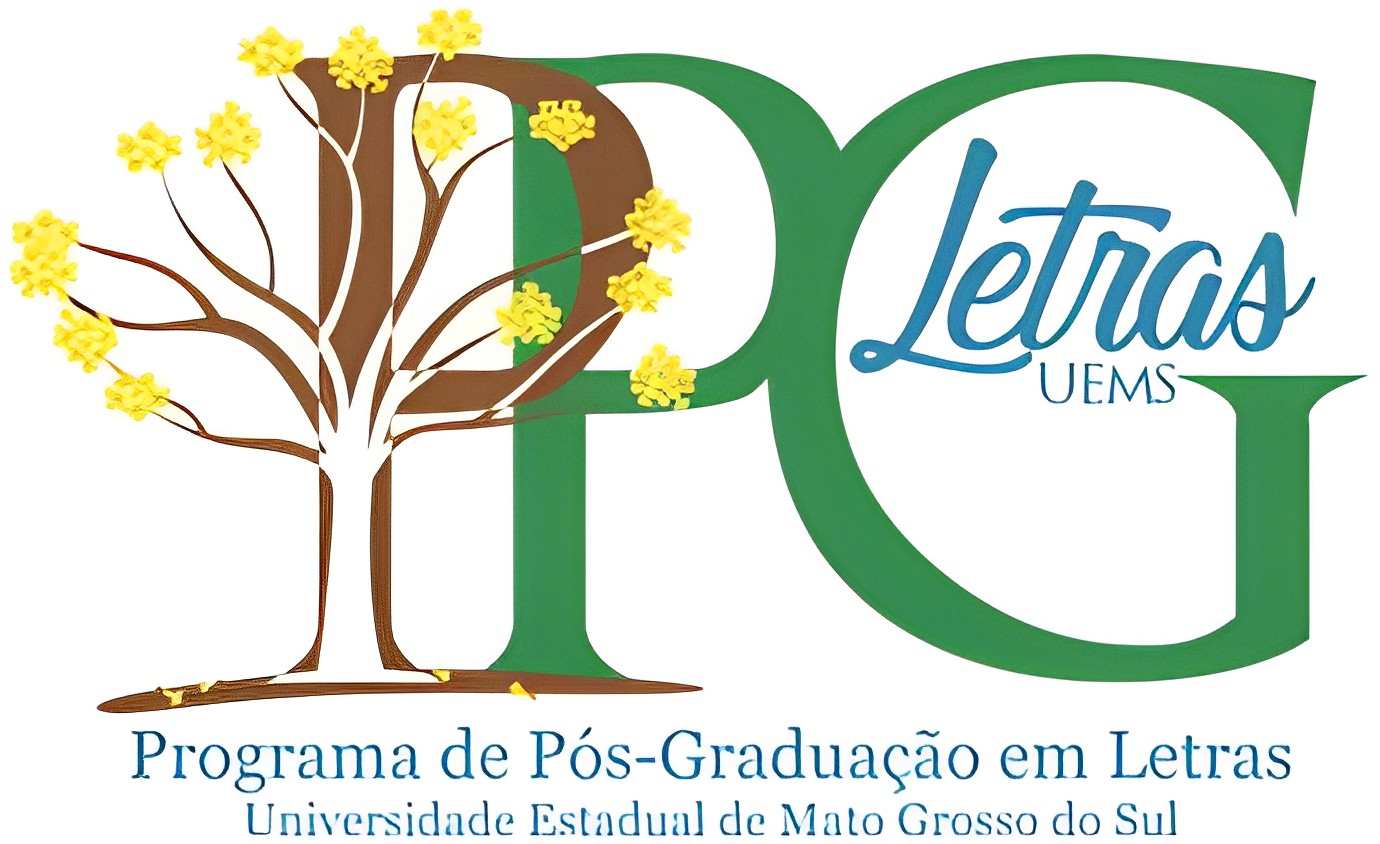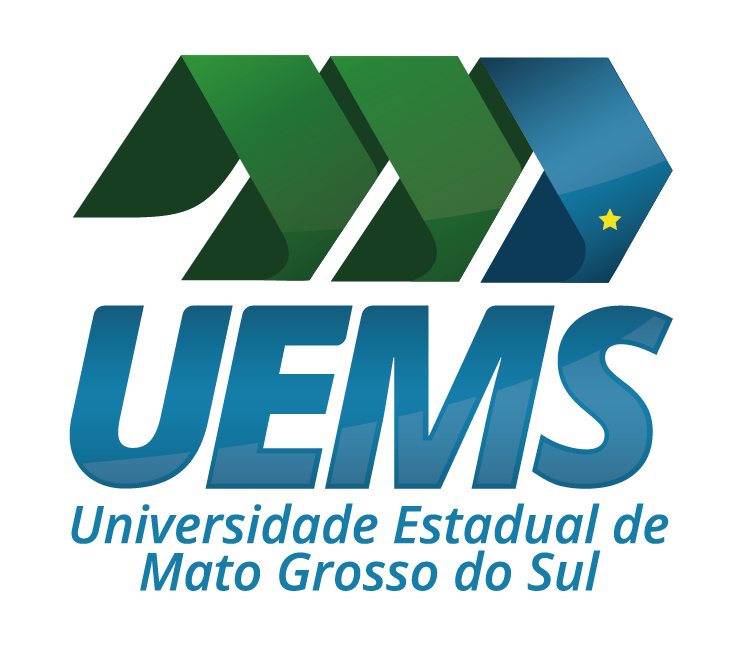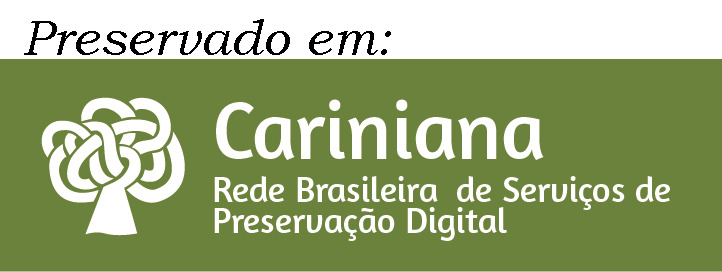“A home in the uncanny” or “an uncanny home
a reading of Clarice Lispector’s Family Ties and Love
DOI:
https://doi.org/10.61389/revell.v1i34.7278Keywords:
Clarice Lispector, epifania, estranho, unheimlich, útero maternoAbstract
In several works by Clarice Lispector, a narrative pattern can be identified that consists of the presence of a constant and growing tension, which culminates in an epiphanic experience on the part of the protagonists. The present analysis argues that, in the case of the short stories Family ties and Love, both from 1960, the epiphanic revelation experienced by Catarina and Ana, respectively, takes place not only through the phenomenological gaze of the protagonists on everyday elements, as is common in Lispector's work, but it will be triggered by a critical component to these narratives, namely, the Freudian sense of the uncanny awakened by the (frightening) possibility of returning to the mother's womb, whether metaphorical or symbolic. In other words, the epiphany occurs when the protagonists witness the transmutation of the feeling of being protected, at home (heimish), in the uncanny (unheimlichen) and finding themselves in the uncanny home (das unheimliche Heim). In the case of Family ties, and drawing on Melanie Klein's psychoanalytic studies, I contend that the involuntary physical contact between mother and daughter constitutes the trigger for the experience of the uncanny, revealing the conflictual relationship between the selfish mother and the envious daughter and the tardy realization of the oneness of the "good breast" and the "bad breast". In Love, adopting the Freudian Oedipal paradigm and its association with the paternal, masculine logic and the hegemonic monotheistic religion, I argue that the sight of the blind man chewing gum - who represents the pre-Oedipal subject who will reintroduce Ana to the realm that predates Culture and its taboos - unfolds the epiphanic experience by symbolizing a possible return to the origins and, simultaneously, to death, with beginning and end being merged together and pointing to the ideal prenatal unit, experienced in the mother's womb.
References
GARIGLIO, María Cristina de Aquino. An Epiphany Inside an Epiphany? Clarice Lispector’s Procura de uma Dignidade. Romance Notes, vol. 28, no. 2, 1987.
EAGLETON, Terry. A Psicanálise. In: Teoria da literatura: uma introdução. 5ed., São Paulo: Martins Fontes, 2003.
FREUD, Sigmund. O Inquietante. In: Obras Completas Volume 14. Trad. Paulo César de Souza. Rio de Janeiro: Companhia das Letras, 2010a.
FREUD, Sigmund. O futuro de uma ilusão. L&PM Editores, 2010b.
JAFFE, Noemi. A Legião Estrangeira de Clarice Lispector e o Efeito do Estranhamento. Instituto CPFL. 23 Apr. 2015. Web. 10 Jan. 2021. Disponível: https://institutocpfl.org.br/a-legiao-estrangeira-de-clarice-lispector-e-o-efeito-do-estranhamento-com-noemi-jaffe/
JONTE-PACE, D. At Home in the Uncanny: Freudian Representations of Death, Mothers, and the Afterlife. Journal of the American Academy of Religion, [s. l.], v. 64, n. 1, p. 61–88, 1996. Disponível: https://search-ebscohost-com.login.ezproxy.library.ualberta.ca/login.aspx?direct=true&db=edsjsr&AN=edsjsr.1465246&site=eds-live&scope=site. Acesso em: 6 nov. 2022.
KLEIN, Melanie. Inveja e gratidão. In: Inveja e gratidão e outros trabalhos 1946-1963. Rio de Janeiro: Imago Editora, 1991.
LISPECTOR, Clarice. Laços de família: contos. Rio De Janeiro: Rocco, 2009.
NUNES, Benedito. A Forma do Conto. In: O drama da linguagem: uma leitura de Clarice Lispector. Rio de Janeiro: Editora Ática, 1989.
RAPHAEL-LEFF, Joan. Freud’s ‘Dark Continent.’ Parallax, vol. 13, no. 2, Apr. 2007, pp. 41–55.
ROSENBAUM, Yudith. Clarice Lispector. Sao Paulo: Publifolha, 2002.
SOPHOCLES, and R. D Dawe. Oedipus Rex. Rev. ed. Cambridge, UK: Cambridge University Press, 2006.
SOUZA, Gilda de Mello e. O vertiginoso relance. In: Exercícios de leitura. Col. O baile das quatro artes. São Paulo: Duas Cidades, 1980.
TOLENTINO, Magda Velloso Fernandes de. Family Bonds and Bondage within the Family: A Study of Family Ties in Clarice Lispector and James Joyce. Modern Language Studies, vol. 18, no. 2, 1988.
Downloads
Published
How to Cite
Issue
Section
License
Copyright (c) 2023 REVELL - REVISTA DE ESTUDOS LITERÁRIOS DA UEMS

This work is licensed under a Creative Commons Attribution 4.0 International License.
DECLARAÇÃO DE ORIGINALIDADE E EXCLUSIVIDADE E CESSÃO DE DIREITOS AUTORAIS
Declaro que o presente artigo é original e não foi submetido à publicação em qualquer outro periódico nacional ou internacional, quer seja em parte ou na íntegra. Declaro, ainda, que após publicado pela REVELL, ele jamais será submetido a outro periódico. Também tenho ciência que a submissão dos originais à REVELL - Revista de Estudos Literários da UEMS implica transferência dos direitos autorais da publicação digital. A não observância desse compromisso submeterá o infrator a sanções e penas previstas na Lei de Proteção de Direitos Autorais (nº 9610, de 19/02/98).



















